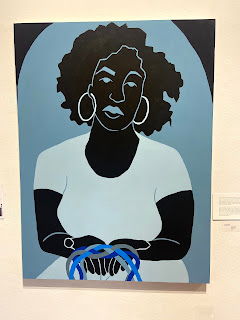Since its National Women’s Month, I would like to highlight some very important women. One in the science world and the other is in literary arts. What if I told you that Phillis Wheatley was just a title that really wasn’t a good name at all given its origin. What if I told you that John Hopkins owes more than half of its entire earnings. Sankofa is a very powerful thing. If you aren’t familiar it means learning from the past to build for the future. If you don’t have wisdom of the past then you can’t build. So, while highlighting these women, I also want to mention how important not only black women are and have been but how important it is to know an accurate depiction of the past. If you knew better you’d do better.
I’m sure at this point you are probably like… “what the hell is he talking about?”. Well, the name of the ship that Phillis Wheatley came from West Africa on was named “The Phillis” and her first owner’s name was John Wheatley. So as a supplement of honoring a super brilliant woman, we also continue to honor her owner and the ship that she was held captive in as a young girl. Despite the bad origin of a name, this woman was invited to meet George Washington. I could care less about him. However, being invited to meet the president in the 1700s not only as a slave but as a black woman speaks volumes on how dope this woman was. Not only was she invited to meet the president, she was the first black woman to publish a book of poetry. She would go on to be freed from slavery.
Before I begin to honor the next woman, I want to talk about how important Sankofa is. In research a guideline for ethical research is called the Belmont Report. It provides an understanding for human use in experimental methods. There was a time that slaves weren’t considered as people as a whole but only 3/5. Basically, slaves were property and functioned by a different set of bylaws compared to their owners. And then there is this guy deemed as the “Father of Modern Gynecology” J. Marion Sims. In strides to gain this title and since slaves were thought to be stronger with higher pain tolerance, black women were used from (1845 – 1849). Although the Belmont report has been in existence since 1978, despite his unethical practices Sims was enshrined with a statue and honored in high regards off enslaved black woman. It wasn’t brought to attention until 2017 with the removal of his statue. American medicine was built on the backs of black people and still affects how doctors treat patients today.
Lastly, I would like to honor Ms. Henrietta Lacks, whose cell line is still being used without consent, contributed to many important breakthroughs in biomedical research. Her cells would be used in the development of the polio vaccine. With that type of contribution, one would think her family would be well taken care of… Nah… It wouldn’t be until more than 60 years later that the National Institutes of Health would include the Lacks family to work in alliance with a group reviewing biomedical researchers’ application for controlled access to the cells. Last year in 2020, The Henrietta Foundation would receives its first form of financial reparations from the Howard Hughes Institute. I’m not surprised going back to the first black woman to publish a book of poetry, she died with less support as a free woman then she did as a slave. Even worse, we have no idea where Ms. Wheatley is buried. I’m proud of the strides and broken barriers that are being promoted by black women. So, I know I honored these women, however there are a many more lesser known black women that need their roses and I intend on giving them whenever I can. Black men too but this month isn’t about us.
****Doing the Knowledge Links****
https://time.com/5243443/nyc-statue-marion-sims/
https://www.womenshistory.org/education-resources/biographies/phillis-wheatley
https://www.nature.com/articles/d41586-020-03042-5
https://www.nytimes.com/interactive/2019/08/14/magazine/1619-america-slavery.html
https://www.hhs.gov/ohrp/regulations-and-policy/belmont-report/index.html





Comments
Post a Comment